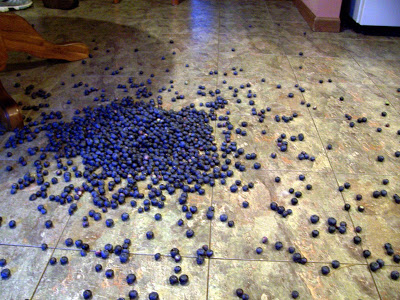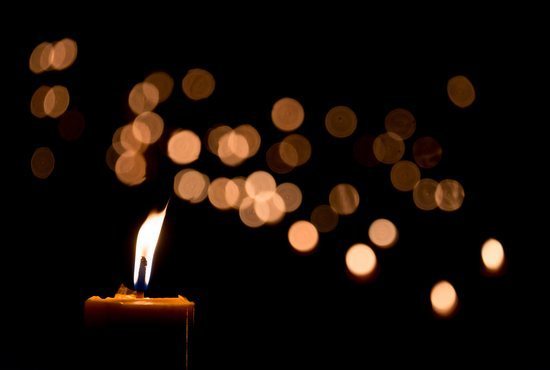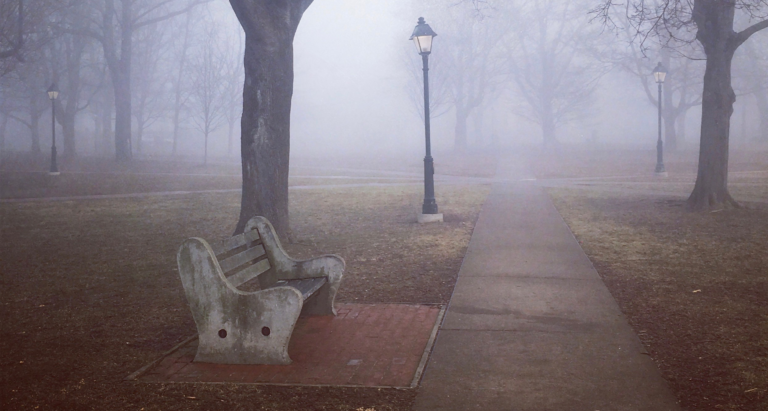This summer, Blazing Fresh Donuts opened across the street from our house.
They make the donuts to order. They drop the batter when you get to the counter and then you get to choose a glaze and any number of toppings and drizzles. The maple-bacon-pretzel donut is one of my creations, along with the chocolate-graham cracker-marshmallow drizzle. They also have a Boston Creme donut, which is a longtime favorite of mine.
I have taken their presence to be a sign from God, and so part of my Sunday ritual is to walk over there on my way to church to get a coffee (and, sometimes, a donut) and read for awhile before church. This morning I began reading David Whyte’s Consolations: The Solace, Nourishment, and Underlying Meaning of Everyday Words. I jumped around a bit and read “alone,” “confession,” and “giving.” Part of what he said about the latter was
To give is to make an imaginative journey and put ourselves in the body, the mind, and the anticipation of another. . . . looking for the imaginative doorway that says I know you and see you and this is how I give thanks for you.
I carried those words to church with me where Ginger preached on the humility of John the Baptist, which was an imaginative doorway I had not gone through before. She looked at the way he was willing to spend his life pointing to someone other than himself, to prepare the way for someone else. He was not intent on being the hero of his story, or anyone else’s. He opened the imaginative doorway for Jesus to walk through.
After the sermon, the choir sang a Shaker hymn as we passed the offering plates:
love is little love is low
love will make our spirits grow
grow in peace grow in light
love will do the thing that’s right
love is gentle love is small
love will find the best in all
find the peace find the light
love will find the thing that’s right
love is silent love is strong
love will sing a quiet song
sing of peace sing of light
love will do the thing that’s right
The words were printed in the order of service and I kept staring at the first phrase: love is little. It sent me back to words from Annie Dillard that I read a few days ago.
How we spend our days is, of course, how we spend our lives. What we do with this hour, and that one, is what we are doing. A schedule defends from chaos and whim. It is a net for catching days. It is a scaffolding on which a worker can stand and labor with both hands at sections of time. A schedule is a mock-up of reason and order—willed, faked, and so brought into being; it is a peace and a haven set into the wreck of time; it is a lifeboat on which you find yourself, decades later, still living. Each day is the same, so you remember the series afterward as a blurred and powerful pattern.
The quote comes from The Writing Life, and she was talking about how to get words on the page, but her sense that our lives are built by the days we live is another imaginative doorway through which we can enter a life of giving–of putting ourselves in the mind, body, and anticipation of one another. How can we give the little gifts, the daily gifts, whether they are words or hugs or things, that say, “I know you and I see you and this is how I give thanks for you”?
I love that last one: this is how I give thanks for you. How do we give the little bits of love that say that to spouses and siblings, to coworkers, to store clerks and servers? How do we become those who open imaginative doorways that make our spirits grow? I think it matters that Whyte named the doorways as imaginative and not imaginary. Imaginary is just making things up. Imaginative is to infuse small things with significance. To spend our days imaginatively is to create a life of love.
A few weeks ago, during our prayer time, a woman gave thanks for the person behind her in line at the supermarket who bent down and picked up the blueberries she dropped and that scattered across the floor. “Her small act of kindness gave me hope,” she said. Me, too.
Love is little. Love is daily. Love says, “I know you and I see you and I give thanks for you.” Imagine that.
Peace,
Milton









